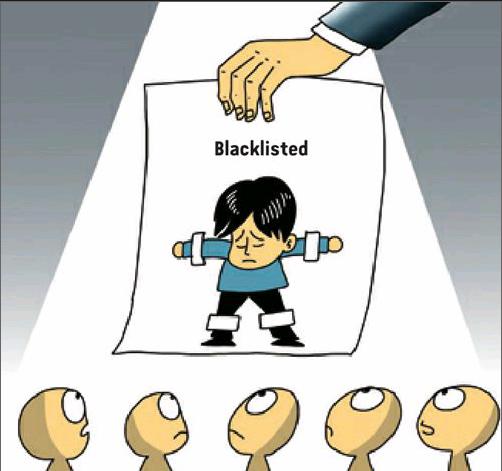Credit Will Speak
2014-08-27ByYinPumin
By+Yin+Pumin

Fake products, unsafe food, under-thetable deals… How can a society cope with such scandals? Authorities in China have answered the question—establishing a nationwide social credit system.
On June 27, the State Council, Chinas cabinet, issued an outline for building a government-led system to record and assess honesty of individuals and government agencies. The outline focuses on social credit in four categories, including administrative affairs, commercial activities, social behavior and the judicial system.
“A thorough credit system is needed for a society to operate well,” said Zhou Keda, a sociologist with the Guangxi Academy of Social Sciences, based in southwest China.
The envisaged system
According to Zhou, dishonesty has long been a social problem in China. A spate of food safety scandals and business frauds have not only affected peoples lives at home but also harmed the nations image abroad.
Official statistics released by the Ministry of Commerce show that the direct and indirect economic losses of Chinese enterprises due to deceptive commercial practices averaged 600 billion yuan ($96.66 billion) annually.
With education alone falling short of helping people understand the importance of integrity, the country must carry out institutional reform, Zhou said.
To counter the problem, the central authorities began to consider the idea of a nationwide social credit system to record individuals actions as early as 2003. In 2007, the State Council issued initial guidelines on establishing a social credit database, suggesting that the system could help build trust and order in a market-based economy.
Work toward the goal accelerated this year in response to sweeping reforms announced in November 2013, when the Chinese top leader- ship vowed to let market forces play a “decisive role” in the economy.
In January, the State Council announced that it would further improve the social credit management system, proposing to set up a national standard for information gathering and management to share social credit data between localities and increase the transparency of the information gathered.
In May, an outline for establishing a national-level social credit system in China was submitted to the State Council for review before its final release.
The outline was drafted by a group of central government agencies led by the Peoples Bank of China (PBC), the countrys central bank, and the National Development and Reform Commission (NDRC), the nations top economic planner.
The PBC already has a credit system containing records for more than 800 million individuals. Last year, the system allowed users to check their credit records online. But information in the PBCs system is limited to personal information and financial records, while the new system will cover a much wider range of information.
“The spirit of contract among market players is a fundamental requirement for market forces to play a decisive role in the economy. Building a comprehensive social credit system cannot be delayed,” said Zhang Zheng, Director of the China Credit Research Center under Peking University.
According to the outline, the implementation of a national social credit system will consist of three phases.
By the end of June, construction of a uniform platform for sharing social credit information was launched, and plans for creating credibility systems in governments, individuals and organizations were submitted. In 2015, the plans will be introduced and implemented, and by the end of 2017, the platform sharing citizens information, including records for business registration, tax payments, social security payments and traffic violations, will be completed.
Wang Lei, Vice Secretary General of the China Society of Administration for Industry and Commerce, said that every citizen, legal entity and social organization will have an exclusive social credit code when the first phase of the outline is accomplished.
By that time, credit references, disclosures, as well as any punishment and reward systems will be linked, which will in turn speed up the completion of the system, Wang added.
Meanwhile, authorities also pledged to establish a set of laws and regulations for the social credit system and a related reward and punishment mechanism by 2020.
“The mechanism will help improve peoples sense of integrity,” said Zhou with the Guangxi Academy of Social Sciences. “Through it, we will be able to award honest people and punish the dishonest.”
Zhang said that consensus has been reached on key points for the social credit system, but challenges remain in several areas, such as collecting, safeguarding and supervising the information.
His opinions were echoed by Tian Yun, an economist with the NDRCs China Society of Macroeconomics.
Tian doubted whether all government departments could cooperate efficiently during the implementation, as the policy is expected to involve a large number of departments.
If executed poorly, the policy could potentially give rise to corruption as officials take advantage of sensitive information for their own interest, Tian warned. He said that the government should prevent abuse of power and guarantee the confidentiality of information submitted by individuals and corporations.
Another challenge Zhou mentioned was the supervision of institutions that will manage credit records, such as banks as well as transportation and social security departments. In his opinion, they must also be included in the social credit system and kept subject to public oversight.
Zhang suggested establishing a regulatory body to oversee the credit system building and map out detailed rules and regulations to prevent abuse.
“The public should be involved in the process of making rules,” Zhou said. “It is easy to build a social credit system, but it takes more time to restore ethical behavior, improve the market economy system and promote equality.”
Credit codes
“The establishment of the social credit code system is the foundation for completing the tasks listed in the outline,” said Tian Jinchen, Director of the NDRCs Fiscal and Financial Department.
At present, the identity card system for individuals has laid a good foundation for setting up a unified social credit code system for natural persons, but a different approach is required to do the same for legal entities and social organizations.
“Legal entities and social organizations could have separate codes at taxation and commerce and industry departments. This may lead to inefficiency and create difficulty in linking different credit information databases,”Tian Jinchen said. He revealed that the NDRC is researching possible solutions to integrate the credit information for legal entities and social organizations, and an initial plan is being drafted.
“The unified social credit code will help link separate credit databases and form an integrated social credit system for all bodies, including individuals and government agencies,”said Wang Yukai, a professor at the Chinese Academy of Governance in Beijing.
Vice Premier Ma Kai said in March that the credit code system will “institutionally strengthen and innovate social management and solidify the foundation for preventing and punishing corruption.”
In order to guarantee the fluent implementation of the outline, a cross-departmental meeting mechanism has been established between different government agencies, led by the NDRC and the PBC, according to Tian. Currently, 25 departments have confirmed to participate in the mechanism.
“Meanwhile, the NDRC is preparing a dedicated website for promoting the establishment of a unified credit information platform,” he announced at a press conference on July 9.
